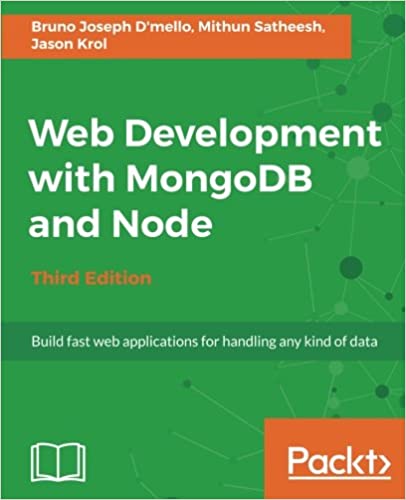; Date: Mon Jul 08 2019
Tags: Google »»»»
It seems that Google is hijacking organic search results, and instead preferencing its own properties. While we can wail and moan and wave our hands about how the design of the Google search result page is preferencing Google's properties, there's nothing like real data. Like some graphs collected by Sparktoro showing clearly a slow trend to squeeze out organic search results in preference to Google's properties.
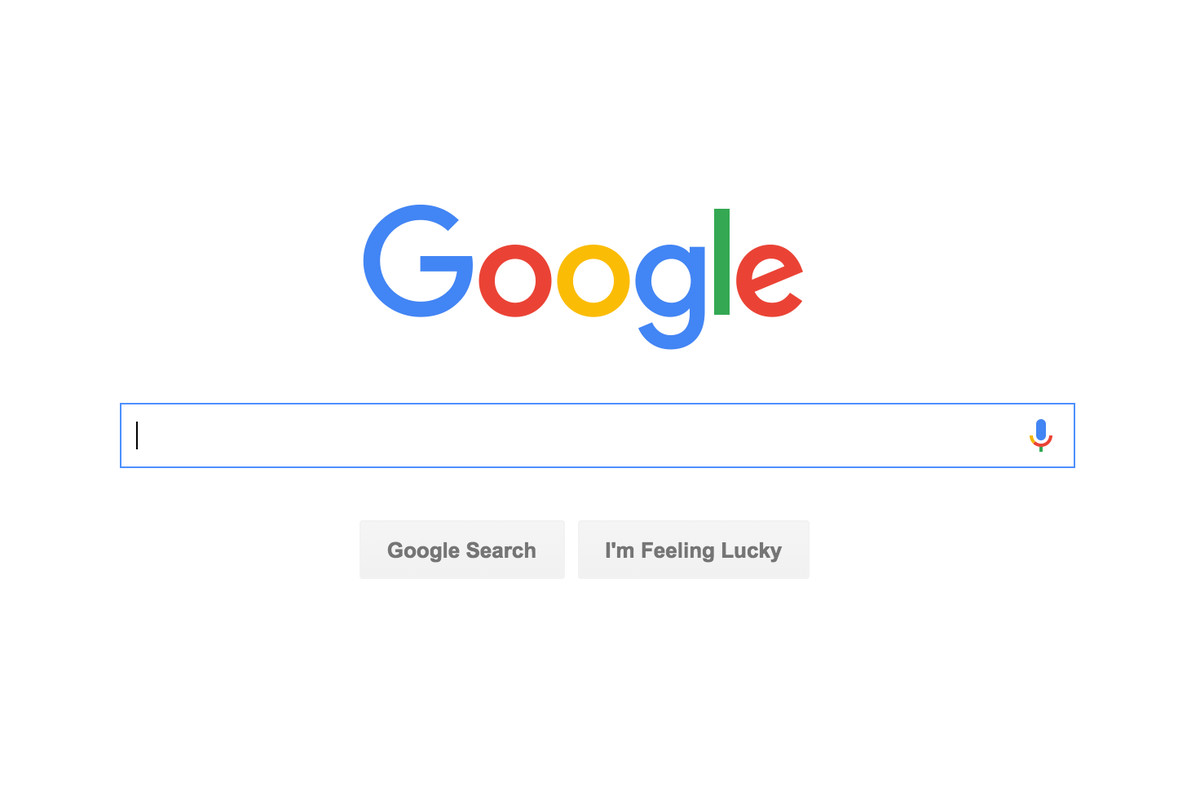
Google is downplaying organic search results in how those results are displayed to users. In the past Google search results showed just the organic results, with a couple advertisements. Nowadays Google often shows a bunch of information that will tend to keep users on Google properties, either links to Google properties or else simply providing the answer in the Google search results. For an analysis, see Google Ads manipulates Google search results
A new study shows this effect numerically - that a huge number of searches on Google result in no clicks to any site, and that the organic clicks to organic results are decreasing slightly.
Therefore - we - website publishers - are being squeezed between two things:
- Google extracting answers from our websites to display in Google search results
- Clicks on advertising
- Clicks to Google owned properties
Google is giving preferential visibility to those three things. Organic search results, which used to have primary visibility, are being pushed aside.
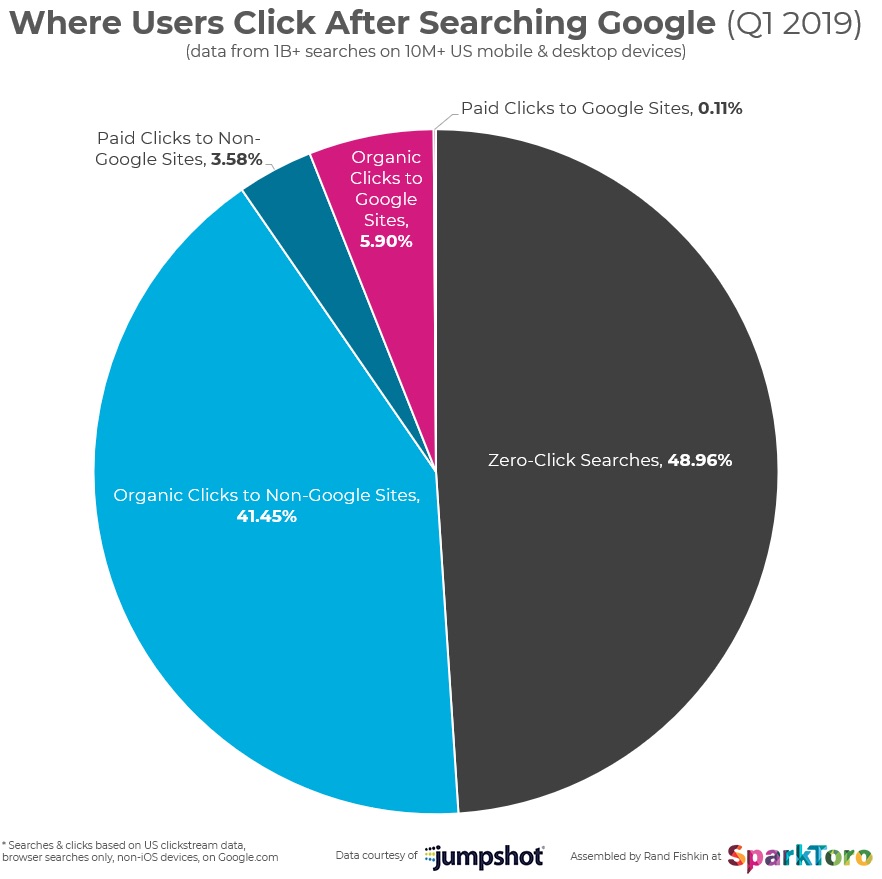
This breaks down where the clicks go on google search results.
- Paid clicks to non-Google sites - This is the advertising block
- Organic clicks to Google sites - This is where Google inserts their own sites into search results
- Zero-click Searches - Presumably this is where Google has extracted the answer from web sites, and presented the answer in its own search page. Or else the search results were a dud, and the user tried a different search phrase
- Organic clicks to non-Google sites - This is the traditional purpose for Google Search, to direct traffic to the organic website.
This means Google is directly answering the question a huge percentage of the time.
This is jaw dropping, but maybe it's not so bad? What about this other graph they published:
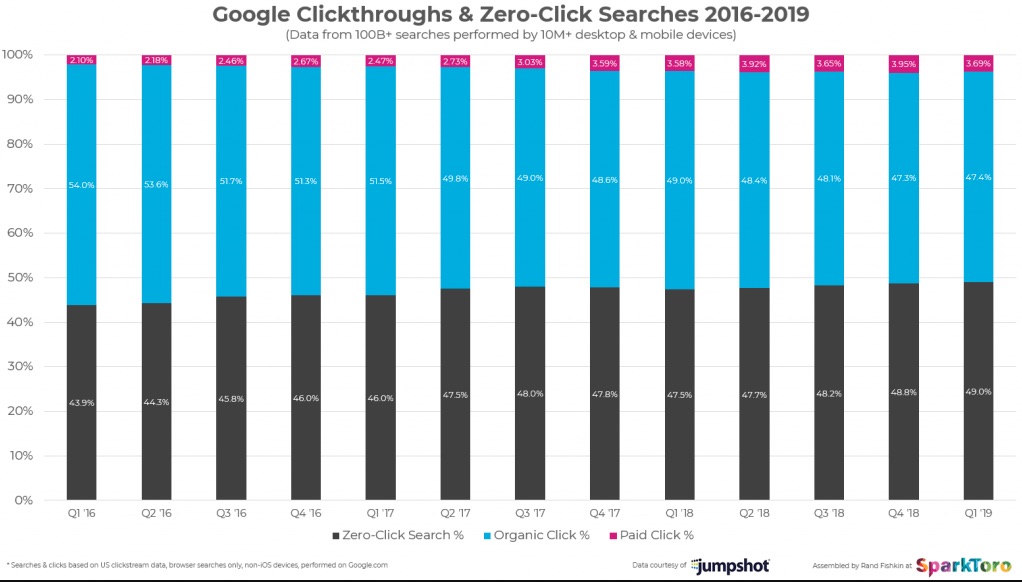
I don't know about you, but what I see is a very slow squeeze-out. Two sections, Paid clicks to non-Google sites and Zero-click Searches, are ever so slowly increasing while the segment we're chasing, Organic clicks to non-Google sites, is ever so slowly decreasing.
The attached video tells us to not worry about this. What we need to do is to focus on creating good content, and that Google will continue rewarding us with traffic. Of course the guys speaking those words have a course to sell us that supposedly includes good advice on creating good content.
But... you should be asking, where did Sparktoro get this data? It's not like Google publishes this sort of data freely.
The Sparktoro blog post (linked below) explains that Congress asked Google these questions last Fall:
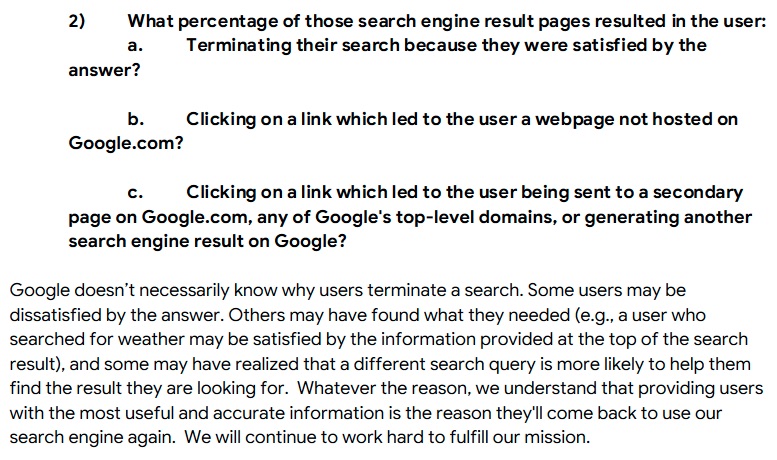
Since Google dodged the question, Sparktoro asked clickstream data provider Jumpshot for the data, hence the attached graphs. There's a lot more discussion about the data and methodology at the Sparktoro website.
Bottom line is that Google is snarfling up the traffic it used to send to websites as organic search result traffic.
Source:
How Much of Google’s Search Traffic is Left for Anyone But Themselves?




